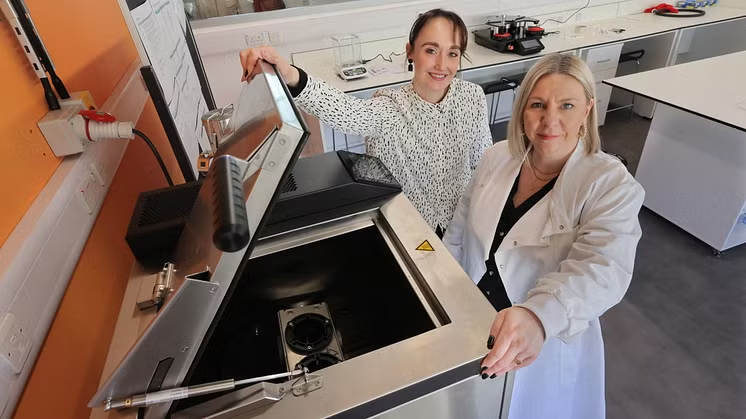New Research Hub in North East England to Explore Extent of Microfibre Pollution from Textiles
A newly established research hub, the Fibre-fragmentation and Environment Research Hub (FibER Hub), located at Northumbria University in Newcastle, will study the environmental impact of microfibre pollution caused by textiles. This initiative is a collaboration between Northumbria University and The Microfibre Consortium (TMC), a science-led nonprofit organization focused on addressing textile-sourced microfibre pollution.
Microfibre pollution is an increasingly recognized environmental issue, with textiles shedding microscopic fibers throughout their lifespan—from manufacturing to everyday wear and laundering. These fibers, once released into the environment, enter the air, soil, and water systems, negatively affecting ecosystems and wildlife. Recent studies show that even natural fabrics like cotton contribute to pollution due to the chemicals applied during manufacturing.
Focus on Testing and Reducing Microfibre Shedding
The FibER Hub will use state-of-the-art equipment to analyze a wide range of textiles and test how much microfibre shedding occurs under different conditions, including washing, drying, and general wear. By identifying when and how fibers are released, the hub hopes to create new strategies to minimize shedding rates.
Traditionally, research on microfibre shedding has focused on domestic laundering. However, the FibER Hub will expand this knowledge by exploring other environments where fiber shedding occurs, aiming to inform the design of more sustainable fabrics. This effort will contribute to long-term solutions that can be applied across the global fashion and textile industries.
Led by Experts and Backed by Industry
The research is part of the IMPACT+ project, which is funded by UK Research and Innovation’s circular fashion and textile programme. The project brings together academics from multiple institutions, including Northumbria University, King’s College London, and Loughborough University. These experts, who specialize in fields such as design, environmental science, and big data, are working with leading fashion brands like Barbour, Montane, and ASOS, as well as sustainable fashion companies and campaign groups.
Dr. Alana James from Northumbria University, the Principal Investigator for the project, emphasizes the importance of this interdisciplinary partnership in tackling the root causes of microfibre pollution. Dr. Kelly Sheridan, the CEO of TMC and Associate Professor in Forensic Science, underscores the significance of the collaboration in providing essential data and insight to TMC’s signatory community, which includes global brands and retailers.
Aiming for a Sustainable Future
By combining academic expertise with industry insight, the FibER Hub will not only contribute to reducing microfibre pollution but also help drive meaningful change across the textile industry. With a growing awareness of the environmental impacts of fashion, this research hub marks a significant step toward developing sustainable fabrics and practices that will benefit the environment and future generations.
For more information or to explore collaboration opportunities with the IMPACT+ project team, interested parties are encouraged to reach out directly.
